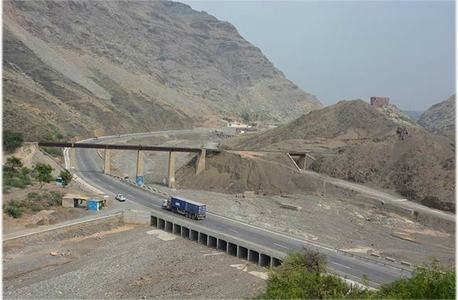ISLAMABAD: More than $2.3 billion disbursement by the World Bank committed for the current fiscal year has been held up due to bureaucratic hurdles as the government banks on short-term loans from friendly countries to meet its foreign exchange needs.
A senior government official told Dawn that 27 development projects under the federal and provincial governments were not getting the planned funding by the World Bank during the current year.
“The delays in current year’s disbursements could also affect the project pipeline for the fiscal year 2019-20,” he said.
Such delays are not only affecting flow of funds from the World Bank but also from other lending agencies and most of these development loans are relatively cheaper and involve decades of repayment schedules, including grace periods. “Some of these loans are repayable in more than 30 years when their net present value (NPV) actually becomes negative or neutral,” the official said.
This is despite the fact that the government has borrowed about $6bn from Saudi Arabia and the United Arab Emirates for one year at about 3.2 per cent interest rate, besides more than $6bn worth of oil facility on deferred payment. The government is also in the process of finalising about $2.5bn short-term commercial credit facility from China to meet its external account requirements.
Government relying on short-term loans from friendly countries to meet forex needs
Officials said the World Bank and the Pakistan government had held a series of meetings in recent weeks to overcome some of the “cross-cutting bottlenecks to the $2.3bn undisbursed portfolio for the current year” so as to protect the $7.4bn overall funding pipeline of 40 approved projects. It was decided to expedite the processing of $480 million of held-up funds, including $178m at the federal level and $308m at the provincial level.
Twelve projects worth $1.2bn are currently not getting the World Bank funding due to procurement issues, sometimes because of conflicting guidelines of the bank and Pakistan’s Public Procurement Regulatory Authority. Another 10 projects worth $1bn are not getting the planned WB funding due to staffing issues as the authorities have not appointed project directors and project-specific technical experts, while about $160m worth of five projects remain without scheduled funding because of delays in opening of bank accounts.
During one of the recent meetings at the Planning Commission, it was noted that only $45m held-up funds could be disbursed immediately out of the $1bn WB-funded approved loans with the commission. Regarding another $1.5bn portfolio, it was noted that seven of the nine projects in the pipeline were awaiting a formal request by the Economic Affairs Division (EAD) as project preparations consumed more than 16 months due to PC-I processing and approval process which should be expedited.
A total of $2.8bn new projects have been approved during the fiscal year 2018-19, including $1.724bn (six projects) under the federal government and $1.102bn (eight projects) under the four provincial governments.
The World Bank has observed that 12 projects involving $1.2bn disbursement this year are facing delays due to decision-making issues by planning authorities or perceived lack of clarity on the part of the authority to use procurement rules of IFIs and the concern about the liabilities which could be unblocked with action by the federal government. Also, $1bn funds could be unlocked with the appointment of full-time project directors to get 10 major projects rolling.
Interestingly, Pakistan has received a paltry $2.324bn of the budgeted foreign assistance in the first half (July-Dec 2018) of the current fiscal year, apparently because of inability of the Pakistan Tehreek-i-Insaf government to secure an umbrella support from the International Monetary Fund (IMF).
The latest data on foreign assistance including loans and grants released by the EAD showed that foreign inflows this year were down almost 61pc form a healthy $5.9bn flow of the same period last year. The half-yearly total inflows against budgeted estimates stood at about 21pc.
The government had estimated about $9.7bn foreign assistance for the current fiscal year (2018-19), including $394m as grants and $9.3bn as loans.
The data showed Pakistan received about $500m in the first six months as commercial loans — $184m from Dubai Bank, $20m from Noor Bank and $295m from Suisse Bank AG, United Bank Limited and Allied Bank Limited.
Likewise, receipts from multilateral donors stood at $770m — $339m from the Asian Development Bank, $272m from Islamic Development Bank and $99m from World Bank as international development assistance (IDA).
Total inflows in six months from bilateral creditors amounted to $1.054bn, with the highest share of $835m from China, besides assistance from France, Germany, Japan, Saudi Arabia and the United States. The EAD data put the total grants received by the country in first six months at $168m and loans at $2.156bn. The original budget presented by the Pakistan Muslim League-Nawaz government for the current fiscal year had estimated $2bn from foreign commercial banks and the country received about $499m.
The Chinese loan disbursements included $185.83m for the Orange Line Metro project, $417.65m for Sukkur-Multan section of the China-Pakistan Economic Corridor, $122.95m for Havelian-Thakot road (CPEC), $69.48m for Pakistan Remote Sensing Satellite and $2.8m for construction of cross-border optical fibre cable system (CPEC).
Published in Dawn, March 11th, 2019














































